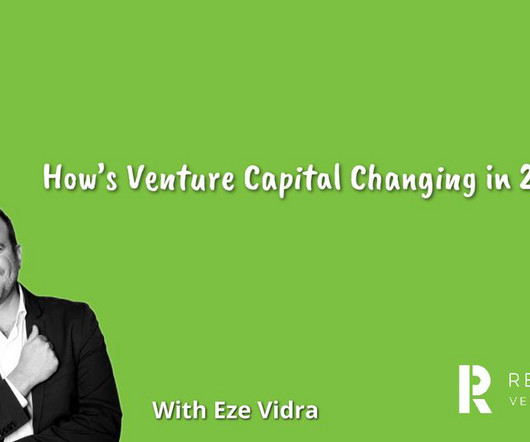How’s Venture Capital Changing in 2023
VC Cafe
FEBRUARY 27, 2023
Taking stock of the venture capital market in 2023, it’s clear to see that we’re in a transition point. For the past 10 years, with interest rates near zero, VC investors plowed record amounts into tech startups and enjoyed a seemingly ‘easy’ investing environment. Don’t just take it from me.







































Let's personalize your content